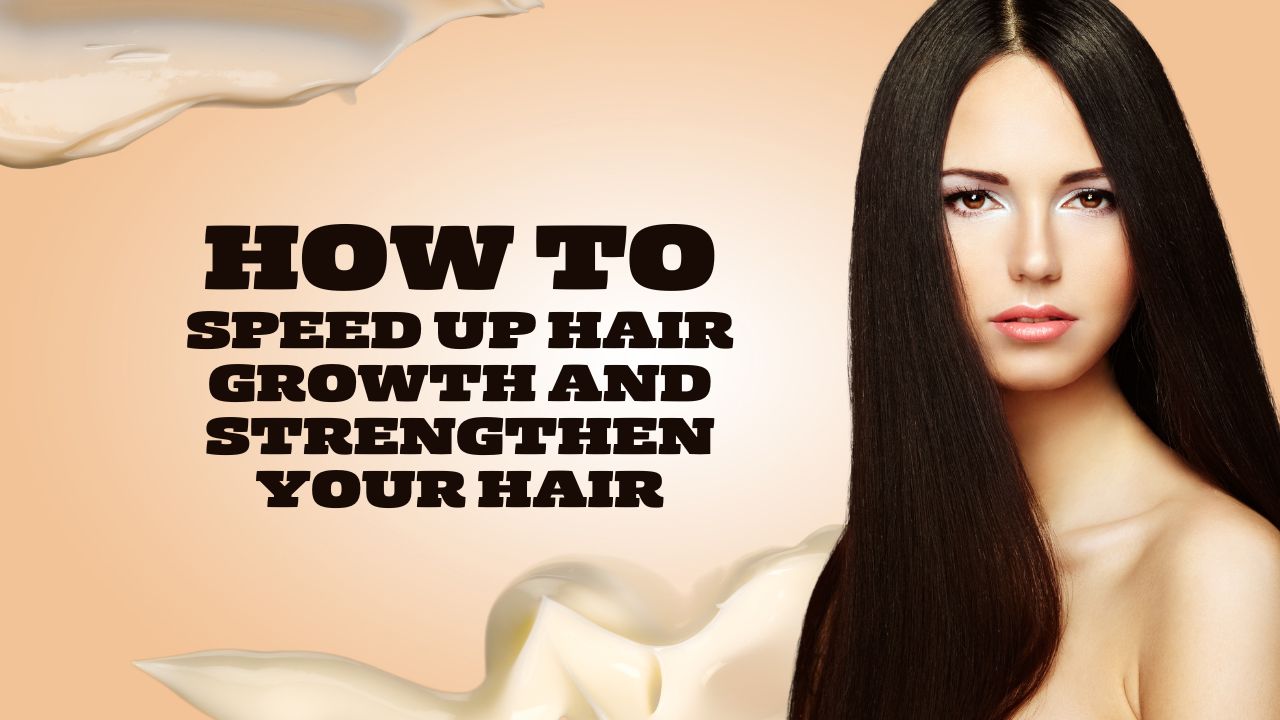How to Speed Up Hair Growth and Strengthen Your Hair

Ever wondered why some people seem to have long, luscious locks while others struggle with thin and brittle hair growth? It all comes down to understanding and maintaining your hair health. Whether you’re aiming for Rapunzel-like lengths or just want stronger, healthier hair, we’ve got you covered. Let’s dive into the world of hair growth and explore the best ways to speed it up and strengthen those strands.
Understanding Hair Growth
The Hair Growth Cycle
Hair growth follows a natural cycle with three main phases: anagen (growth phase), catagen (transitional phase), and telogen (resting phase). The anagen phase can last from two to seven years, determining how long your hair can grow. The longer the anagen phase, the longer your hair will be.
Factors Influencing Hair Growth
Genetics, age, hormones, and overall health are key players in determining your hair growth rate. While you can’t change your genetics, you can certainly optimize other factors to enhance hair growth.
Diet and Nutrition for Hair Growth
Essential Vitamins and Minerals
Vitamin A is crucial for cell growth, including hair cells. Foods like carrots, sweet potatoes, and spinach are great sources.
Vitamin E helps improve blood circulation, which can promote a healthy scalp. Nuts, seeds, and avocados are rich in this vitamin.
Biotin, or Vitamin B7, is known for its role in hair health. You can find biotin in eggs, almonds, and whole grains.
Importance of Protein
Hair is primarily made up of a protein called keratin. Ensuring you have enough protein in your diet is essential for hair growth. Incorporate lean meats, fish, beans, and legumes into your meals.
Hydration
Just like your skin, your scalp needs to stay hydrated to support hair growth. Drinking plenty of water helps maintain a healthy scalp environment.
Hair Care Routine
Regular Trimming
While it may seem counterintuitive, regular trims prevent split ends, which can travel up the hair shaft and cause breakage. Aim for a trim every 6-8 weeks.
Choosing the Right Shampoo and Conditioner
Select products that are free from sulfates and parabens, as these chemicals can strip your hair of natural oils. Look for shampoos and conditioners with natural ingredients that nourish your hair.
- Avoiding Heat Damage
Excessive use of heat styling tools can weaken your hair. When you do use them, always apply a heat protectant spray to minimize damage.
Natural Remedies for Hair Growth
Coconut Oil
Coconut oil is a time-tested remedy for nourishing the scalp and hair. It penetrates the hair shaft and reduces protein loss.
Aloe Vera
Aloe vera has enzymes that promote healthy hair growth. Apply aloe vera gel directly to your scalp and let it sit for an hour before rinsing.
Onion Juice
It may sound strange, but onion juice is rich in sulfur, which boosts collagen production and helps with hair growth. Apply it to your scalp and wash it off after 15 minutes.
Supplements and Treatments
Popular Hair Growth Supplements
Supplements like biotin, collagen, and folic acid can support hair growth when taken regularly. Always consult with a healthcare provider before starting any supplement regimen.
Topical Treatments
Products containing minoxidil are commonly used to treat hair loss and promote growth. These treatments are usually applied directly to the scalp.
Laser Therapy
Low-level laser therapy is a non-invasive treatment that can stimulate hair growth by improving blood flow to the scalp.
Lifestyle Changes for Healthy Hair
Stress Management
Chronic stress can negatively affect your hair growth. Practice stress-reducing activities like yoga, meditation, or hobbies you enjoy.
Adequate Sleep
Your body repairs itself during sleep, including your hair follicles. Aim for 7-9 hours of quality sleep each night.
Regular Exercise
Exercise improves blood circulation, which can help deliver more nutrients to your scalp and promote hair growth.
Common Myths About Hair Growth
Myth: Frequent Haircuts Speed Up Growth
Hair grows from the roots, not the ends. While trims can prevent breakage, they don’t affect the growth rate.
Myth: Brushing Your Hair 100 Strokes a Day
Excessive brushing can actually cause more damage than good. Gentle brushing to detangle is sufficient.
Signs of Unhealthy Hair
Split Ends
Split ends are a clear sign of hair damage. Regular trims and proper hair care can prevent them.
Excessive Shedding
While it’s normal to lose some hair daily, excessive shedding could indicate a problem that needs addressing.
Dry and Brittle Hair
Dryness and brittleness often result from over-styling or lack of moisture. Hydrating treatments can help restore your hair’s health.
When to See a Professional
Persistent Hair Loss
If you notice significant hair loss, it’s time to consult a dermatologist or a trichologist to rule out any underlying conditions.
Scalp Conditions
Issues like dandruff, psoriasis, or fungal infections can impede hair growth. Professional treatment can help manage these conditions.
Seeking Professional Advice
If you’re unsure about the best approach to your hair care, a professional can provide personalized recommendations based on your hair type and needs.
Conclusion
Achieving healthy, fast-growing hair is a blend of proper nutrition, effective hair care, and lifestyle adjustments. By understanding the factors that influence hair growth and implementing these tips, you can enhance the health and strength of your hair. Remember, consistency is key, and patience is crucial. Your dream hair is within reach!
Read More: 10 best bubble Braids Short Hair ideas for every women
FAQs
Hair typically grows about half an inch per month, so you can expect around six inches of growth per year.
Yes, tight hairstyles like ponytails and braids can cause tension on the scalp and lead to hair breakage.
Foods rich in vitamins A, C, D, E, zinc, iron, and omega-3 fatty acids can promote hair health. Include leafy greens, nuts, seeds, and fatty fish in your diet.
Use a wide-tooth comb, avoid excessive heat styling, and apply hydrating hair masks regularly to prevent breakage.
Genetics largely determine your hair growth rate, density, and texture. However, good hair care practices can help maximize your genetic potential.